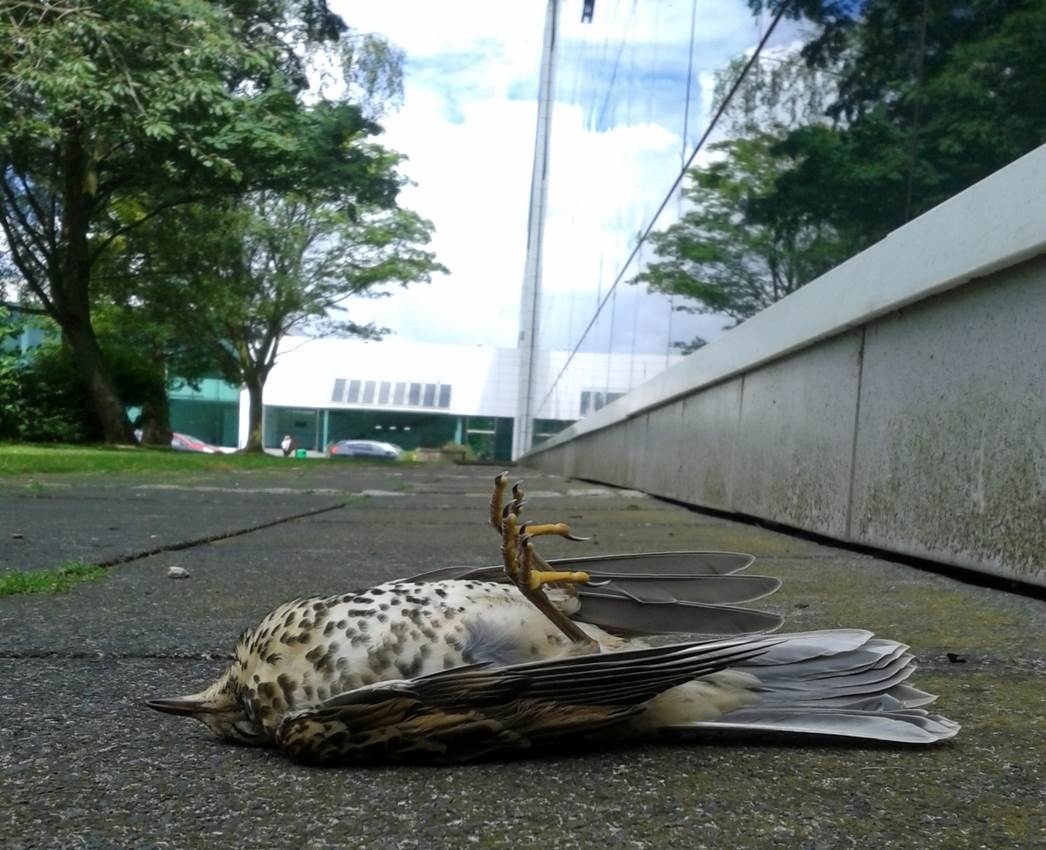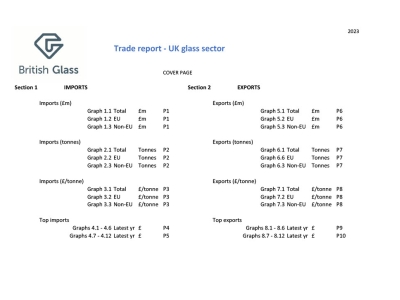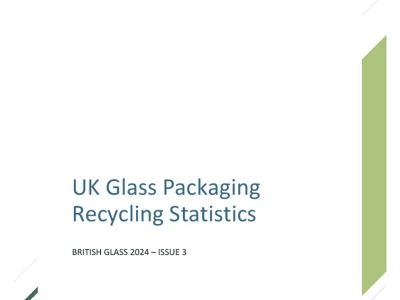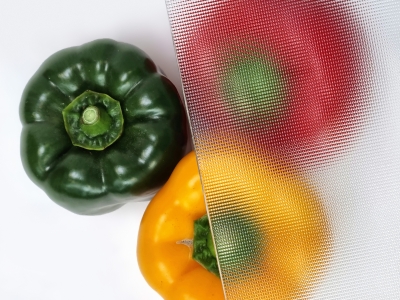
With the RSPB Big Garden Birdwatch happening this coming weekend, we were delighted to hear from long-standing British Glass member Pilkington United Kingdom Limited that they’re planning to launch a bird-friendly glass – the first glazing product of its type to be manufactured in the UK. Simon Slade, a keen ornithologist and Pilkington employee, agreed to tell us more.
Millions of birds fly into windows every year – and many of these collisions are fatal. It often happens because the bird doesn’t realise the sky or trees it can see are just a reflection, and so the bird crashes into the glass as it tries to fly to them.
Up to now, stopping birds flying into reflections has meant adding visible shapes or decoration to glass. Patterns of printed dots have been found to be highly effective – but these do, of course, make the glass much less effective as a window!
The challenge has been to create something the birds can see but which we humans can’t.
The technical team at Pilkington are experts at manipulating the absorptive and reflective properties of complex coatings. (A big part of making architectural glass is the development of special coatings – for example to make the glazing more thermally efficient or control its appearance.)
Our new glass – designed to protect birds – has been developed by combining this knowledge with an understanding of how birds see the world: many use ultra-violet light (which is invisible to humans) and wavelengths we can barely see.
Working closely with avian experts, we’ve developed a coating that combines UV reflective and anti-reflective material in a pattern that disrupts the reflection, as a bird sees it – so instead they see a barrier. The coating and pattern we’ve developed is barely visible to humans, especially from the inside – so we look right through the glass, more or less undisturbed.
It sounds easy if you say it fast, but achieving this means carefully controlling the layers in the coating – down to the nanometre.
Pilkington isn’t the first to try UV-enhanced patterns; other manufacturers have produced and marketed UV-patterned glass as ‘bird protecting’. However, in field trials these products aren’t necessarily as effective as expected at stopping birds from colliding with them.
In trials conducted by independent zoologists at bird ringing stations in Europe and America, our UV-enhanced glass was as effective at deterring birds from flying into reflections as glass screen printed with a fully visible pattern of dots.
We are currently in final-stage trials of the glass. We’re grateful to local nature reserves in Lancashire (including Mere Sands Wood LWT reserve, shown in the pictures) for installing the glass in some of their buildings to make sure it works for the birds – and the staff and bird lovers who want to be able to see them!
The RSPB Big Garden Birdwatch is a brilliant event – I urge you to get involved. It is the world’s largest wildlife survey and provides an astonishing amount of insight into how our country’s wildlife is faring. I hope, in future years, our glass will be making a contribution to the welfare of birdlife in this country too.
Steps you can take at home
- Sign up for the Big Garden Birdwatch at www.rspb.org.uk/Birdwatch
- Reduce the hazard by making the window pane more obvious to birds. Fixing an object to the outside of the glass should help. Try shapes cut out of self-adhesive plastic. Stick-on silhouettes can be purchased from any RSPB shop, many good pet shops and garden centres.
- If you find a bird that has flown into a window, it may have suffered from concussion and could have internal injuries. Broken wings or legs are rare. Give the bird a dark safe place to rest for a couple of hours, during which time it will either recover or die from its injuries.
Information is from www.rspb.org.uk
Notes
Pilkington United Kingdom Limited, part of NSG Group, manufactures a wide range of float, coated, rolled, laminated and toughened glass products as well as its own range of high-performance insulating glass units. Glass is distributed direct to customers, either as stock or as bespoke processed products to meet their needs, either direct from St Helens or through its network of branches countrywide. The company is highly focused on quality and service, continually improving to deliver the benefits of the NSG Group's technical ability and innovation to the end user.
Pilkington’s bird strike deterring glass is expected to be available from late 2018; it is specially designed to reduce collisions due to birds seeing reflections (less-common fly-through problems require different solutions).


